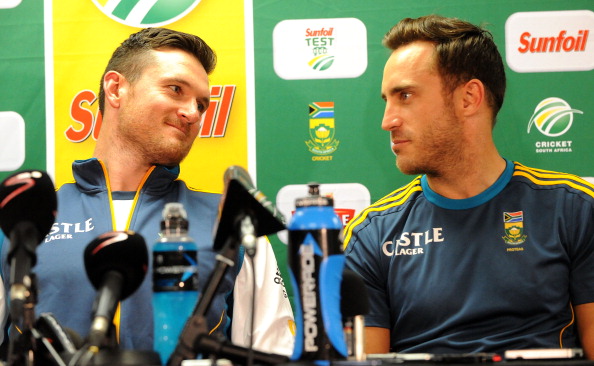The Proteas have gone from a generation with a surplus of highly competent leaders in the same team, to having no obvious candidates for captain in the present day. SA Cricket magazine editor, RYAN VREDE, reflects on the sorry state of affairs.
Graeme Smith, Neil McKenzie, Hashim Amla, Mark Boucher, Jacques Rudolph, Ashwill Prince, AB de Villiers, Jacques Kallis, Faf du Plessis, Alviro Petersen, JP Duminy. These men all formed part of the generation of players that preceded the current one.
They often all played in the same team, and, outside of Smith and Du Plessis, who had the captaincy full time, many in the list skippered on a temporary basis at some point. Those who didn’t, certainly had the capacity to, evidenced by many of them captaining their franchise teams. Its also notable that many of the retired players mentioned above now coach, and in Smith’s case, occupy one of the premier leadership seats in South African cricket.
One could mount a strong argument that the prevalence of highly competent leaders had much to do with their consistently high performance level, collectively and individually. After all, effective leadership (in this context) requires, among a myriad other qualities, emotional maturity, high measures of temperament under pressure, tactical intelligence and a ‘feel’ for the game. When those qualities are present in men who are, firstly, leading themselves, and secondly, contributing to the leadership of the collective, performance excellence is often a potent by-product.
Skip forward a generation and you have a generation of Proteas who are sorely lacking in this regard. There are a few among them who exhibit these qualities – Du Plessis and Dean Elgar among them. However, overall, this is a generation of players devoid of a natural leader/s, and certainly patently lacking in men who, at this stage of their careers, have exhibited any of the leadership qualities the preceding generation did.
This leaves the Proteas in a position where, having confirmed that Quinton de Kock will not continue as the captain of the Test side, they now have no obvious candidates to succeed him.
I understand why he was appointed, but De Kock never looked like a good fit from the outset. Indeed I suspect that in time he may be relieved of the white-ball captaincy as well. He is the team’s most naturally gifted batsman, but his gift is compromised because he wears leadership like a shackle.
In the absence of what people call a natural leader – by which they mean a player who possesses high measures of multiple leadership qualities – you’re left picking a captain based on a singular quality or at best a couple of qualities. For example, Elgar’s mental strength, Markram’s relative youth and growth potential ect. You simply don’t have a candidate who ticks multiple boxes, as Smith did, and as many of those from his generation did.
There is no obvious reason for our present day paucity of leaders.
It is likely to have something to do with the appreciable quality of South Africa’s first-class system at the time the Proteas’ golden generation were in their formative years. There is no question that there has been a significant drop-off in the quality of the first-class game since, due in some part to the Kolpak system’s attractiveness to the country’s elite talent, as well as the option of becoming a T20 specialist and plying one’s trade in various tournaments around the world.
The first-class environment was unforgiving, both in its technical and mental demands, for a young player. You adapted or your career died. For the personalities with a high base measure of temperament, this forges a granitic mentality, and forces you to develop degrees of self-leadership that gives you the foundation required to lead men in both formal and informal roles later in life.
It is no co-incidence that the two men with the most notable leadership skills in the current Proteas squad – Du Plessis and Elgar – also played more first-class cricket before their elevation to international cricket than any other in the squad.
The slow death of club cricket may be another factor. Prince and Petersen have spoken at length about the importance of this experience in their personal development. First-division club cricket across the country used to be populated by a mix of highly gifted amateurs, seasoned veterans, and young, ambitious junior pros. Prince has insisted that first-division club cricket prepared him for an international career in a manner many young internationals haven’t benefitted from because they are cotton-wooled by their franchises, seldom being released to play club cricket, even when they have weekends off. Again, this environment forces one to learn to lead oneself.
There is also something to be said for sheer luck. That a generation of players so laden with leadership ability would emerge must have a luck dimension.
The present-day situation should be worrying because to be scratching around for a Test captain is an abnormal situation, particularly in South African cricket where we’ve previously been blessed a surplus of good and great leaders.
This generation will have to settle for a man who, at this stage of his career, will have one or at best a couple of the qualities you need to be a consistently successful Test captain. Maybe its time to make peace with this reality and hope that the next Smith or Du Plessis, indeed a generation of leaders, emerge and set South African on course again.







